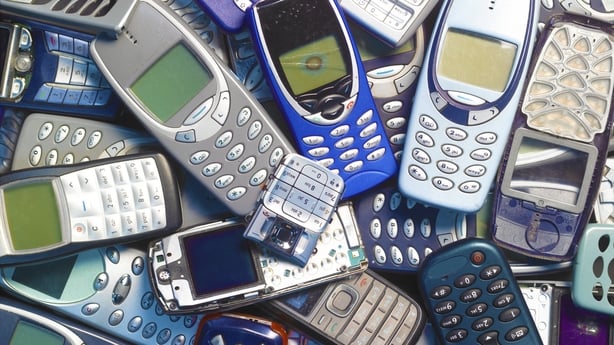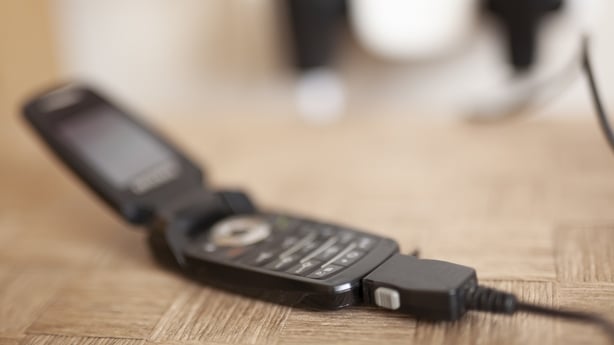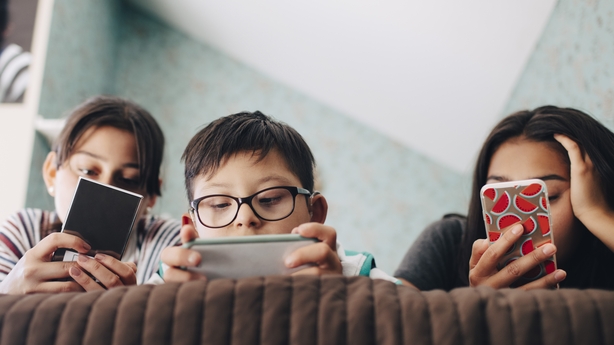Before there was an app for that, there was Snake. And Snake reigned supreme for years until one day in January 2007 when Steve Jobs unveiled the iPhone. Apps have lived in our pockets ever since. Are we fitter, happier, more productive? Some people don't think we are and they’re swapping their smartphones for, well, dumbphones.
Today with Claire Byrne reporter Brian O’Connell spent some time looking into what seems to be a small but growing subset of phone users who want to return to the times when you could make calls and send texts. And play Snake. Brian joined Colm Ó Mongáin to share what he’d learned.
"Nine out of 10 phones sold are still smartphones, so I don’t want to overhype this. There is huge demand for having phones with multiple apps in our pockets, allowing us to remain connected 24/7... But there is a niche, but a growing demand for older, featureless phones."

One of the new products looking to cater for this trend that Brian mentions is the BoringPhone, the upcoming second-generation model of which has the slogan, "Get out of your phone and into your life". Nokia – yes, they’re still going – has a number of dumb and quasi-smart phones for the person looking to cut down on their social media usage.
Brian told Colm that he spoke to a man who works in the phone industry, Michael Donohoe in Cavan, who told him that he’s seen demand for non-smartphones grow, especially in the last few years:
"I see more people, more and more people coming round to actually getting the dumbphones these days. And I see these people much happier because of it."
A lot of the people Michael sees asking about featureless phones skew older, but there are also plenty of tradespeople and farmers. With today’s smartphones often costing upwards of €1,000, it’s hardly surprising that if you work in construction you want to be carrying a phone that will cost less than €100 to replace if it falls from a third-storey scaffold.
Dumbphones are also just quieter, Michael says and he should know because he owns one:
"I would have a separate work number myself and I have it in a little basic button Nokia 105 and we’ll say if [his smartphone] ever gets lifted, or breaks the screen, I always have that one to fall back on myself."

Although Michael needs his smartphone for work-related WhatsApp, Brian also spoke to someone who’s taken the plunge and ditched their smartphone. Arts student Jody Abernathy told Brian how he came to have and why he’s keeping his "featurephone":
"I actually broke my phone and it smashed, so I said, 'That’s that. I’m not getting another one.’ So, I just went into the phone shop and got a €70 little Nokia."
The phone doesn't have WhatsApp, so Jody sends SMS text messages instead. His phone use is remarkably uncomplicated: "I use it for texting, alarm in the morning, calling. That’s about it, yeah."
No bells, no whistles. Jody seems happy with his choice. Would it work for everyone?
Brian spoke to psychologist Dr Malie Coyne who told him that a lot of people are talking about phone usage:
"It’s really something of concern for people of all ages, I suppose. For anybody, you know, we’re concerned about our teenagers, but also ourselves as adults. So, downgrading to something like, you know, one of our old type of phones will prevent that, I suppose, from happening. And also, I suppose, people can access the important parts of their job on their computers without maybe having access to it 24 hours a day in their pockets."

The reason some people switch to dumbphones, Dr Coyne says, is that they’re trying to limit their behaviours. But there are other remedies if you’re not ready to give up your smartphone:
"Like monitoring how much you’re using it per day, restricting that access – you can do that, I do that with my own kids, restrict their app usage during the day. I’ve thought of doing it myself ‘cause I find myself picking up the phone quite a bit. ‘Cause when you think of it, these social media companies are spending billions of dollars trying to take away our attention and distract us. So it is a real concern."
Is smartphone usage an addiction or a dependence? It isn’t yet classified because the research is still in its infancy. Is there any chance, Brian asked, of Dr Coyne giving up her smartphone? Not really, is the answer:
"I don’t think so, but I am thinking of limiting my app time the way I would with my kids, ‘cause I think it’s only fair."
That’s the professional’s view on it. If you think you can live without WhatsApp, selfies, email, the internet and all your social media, maybe you can ditch your smartphone too. Snake is waiting for you.
You can hear all of Colm’s conversation with Brian by clicking above.

